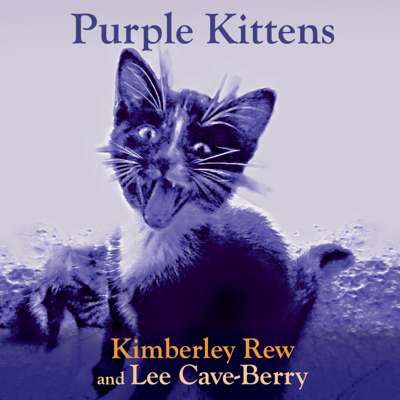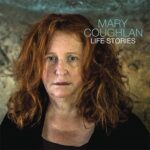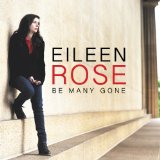
My first proper exposure to the work of Kimberley Rew was when I reviewed the retrospective, “Sunshine Walkers”, in 2020. There’s a theme running through that collection and “Purple Kittens” as well; a celebration of Englishness. Not the populist, flag-waving, “Vindaloo”-singing Englishness. Not that at all. It’s real ale at a riverside pub with the sounds of a skittle alley and maybe a Morris side performing. That kind of Englishness; the kind that’s celebrated by songwriters like Roy Harper and Ray Davies. So it’s appropriate that the album’s opener is “Penny the Ragman”.
The song’s a tribute to Kimberley’s late cousin, Penny, who, among other things, looked after the uniforms for a Morris side (a position known as Ragman) and was inspired by conversations at her wake. It’s a pretty good companion piece for The Kinks’ “The Village Green Preservation Society” as a celebration of a vanishing lifestyle. However, there’s a lot more to “Purple Kittens” than nostalgia; both Kimberley Rew (guitars and vocals) and partner Lee Cave-Berry (bass and vocals) are natural songwriters in the Nick Lowe mould, creating great songs out of eternal themes or the most mundane events and situations, even out of one repeated phrase.
Which is exactly what “Raspberry Ripple Ice Cream” does. Against a spiky, punky riff, the only lyrics are the title (apart from a slight culinary diversion into rum and raisin) sung by both Kimberley and Lee, and a bass solo. It’s just a bit of fun, but it’s done really well. “Black Ribbon” is more serious; it’s a rocking tribute to Roger Smith, of the Cambridge band Jack, who died of COVID last year. It was written by his two grandsons (aged six and eight) the ribbon of the title isn’t a mourning accessory, it refers to the band he wore round his Panama hat.
The Soft Boys cover, “Kingdom of Love”, is progressive and psychedelic with Kimberley/Lee harmonies in the chorus that evoke Nancy Sinatra and Lee Hazlewood, while Lee’s “Unsatisfactory Cats” is a whimsical Kirsty MacColl-tinted exploration of cat behaviour that cat owners/servants will identify with – I certainly did. “Wrong Song” uses the musician’s lot as a metaphor for our daily lives; live performance is a one-off thing and any mistakes are part of your history. You only get one try and you can’t fix it or remix it. There’s also a reference running through the song to Paul Simon’s “50 Ways to Leave your Lover”. Finally, “Daytime Night Time”, which closes the album, runs through the mundane cycle of life, from birth to death, in under five minutes (and that includes extended guitar riffing referencing Chuck Berry and Francis Rossi). It’s a joyous celebration of life and rock ‘n’ roll music.
“Purple Kittens” won’t be troubling the national album charts, but that won’t keep Kimberley Rew and Lee Cave-Berry awake at night. They make albums and play live for the sheer joy of it; that’s what they do and that in itself is worth celebrating. “Purple Kittens” is twelve songs celebrating lives, ways of life and sometimes just cats and ice cream, created and crafted with skill and joy, and a real love for this country. I’ll take that, thank you very much.
“Purple Kittens” is out now on KL Recording (KKL016).
Here’s the video for “Wrong Song”:
 It’s no surprise that “Life Stories” is autobiographical; the title is a bit of a giveaway. Mary Coughlan’s renowned for her unflinching honesty and this album has its painfully candid moments, but there’s a healthy seasoning of musical and lyrical humour for contrast. I’m using autobiographical a bit loosely here; there are a few interpretations in addition to Mary’s co-writes, but they’re all carefully chosen to fit in with the overall themes of the album.
It’s no surprise that “Life Stories” is autobiographical; the title is a bit of a giveaway. Mary Coughlan’s renowned for her unflinching honesty and this album has its painfully candid moments, but there’s a healthy seasoning of musical and lyrical humour for contrast. I’m using autobiographical a bit loosely here; there are a few interpretations in addition to Mary’s co-writes, but they’re all carefully chosen to fit in with the overall themes of the album.
A perfect example is the album’s opener “Family Life” which touches on dysfunctional families and religion. It’s obvious from the first few bars that it’s a Blue Nile (Paul Buchanan) song but Mary’s incredible voice immediately marks it as her own. And that voice; the obvious and over-used comparison is Billie Holiday, but it’s still valid. The richness and resonance of Mary’s voice and the exquisite phrasing are the magic ingredients that bring the songs to life. That and the quality of the musicians and arrangements. The band moves seamlessly between the slow ballad stylings of “Elbow Deep” and “No Jericho” the swing of “High Heel Boots” and “Forward Bound”, and the sixties chanteuse pop of “Two Breaking Into One” as the album ebbs and flows on its journey. The only aim of the band is to serve the song and to give Mary the best setting for her potent vocal delivery.
Although Mary has the reputation of being harrowingly honest, there’s also a lot of humour running through the album. “High Heel Shoes” hints at “These Boots Were Made for Walking” and the late Kirsty MacColl’s fabulous “In These Shoes”, while George Gershwin’s “Do It Again” is given a cheeky intro with the very short Cole Porter pastiche “Little Dance”. And the album’s closing song “Twelve Steps Forward, Ten Steps Back” takes a humorous swipe at the addiction recovery process. I want to read a positive approach into it because there’s a gain of two steps. The slow ballad “Safe and Sound” also shines a positive light contrasting Mary’s troubled past with the love she feels for her own children and grand-children.
Two of the darker songs on the are interpretations of songs by other Irish writers. “Elbow Deep” is a Karrie O’Sullivan song about the young Irish women abandoned by their families after indiscretions and “No Jericho” is a Susan McKeown song, stripped back to a slow piano and upright bass arrangement that leaves plenty of space for an intimate vocal interpretation.
“Life Stories” is one of the best albums I’ve heard this year. It’s a journey from pessimism to optimism with occasional flashbacks and doesn’t ignore the fact that even the most horrific journeys can have their humorous twists and turns. It’s a fine set of musicians creating settings that make these twelve diamonds sparkle.
“Life Stories” is released in the UK on Friday September 4th on Hail Mary Records (HM002CD).
 This made-in-Nashville, contemporary country album is full of sweet surprises, the sometimes quirky arrangements, the lyrics, the instruments… It has different moods and tempos and Eileen Rose makes you want to listen to her latest offering, she speaks clearly to her audience, one to one. She’s no newcomer either; a few albums in and plenty of touring and festivals to support them, this is an accomplished and confident sounding album.
This made-in-Nashville, contemporary country album is full of sweet surprises, the sometimes quirky arrangements, the lyrics, the instruments… It has different moods and tempos and Eileen Rose makes you want to listen to her latest offering, she speaks clearly to her audience, one to one. She’s no newcomer either; a few albums in and plenty of touring and festivals to support them, this is an accomplished and confident sounding album.
She started writing at 14, trying to emulate her idol, Kate Bush, but was listening to an eclectic diet of music from Bowie to Linda Rondstadt. Eileen Rose has both American and Irish heritage and her first gigs were around Boston when she was playing mainly folk music. Since then she has also lived in urban Essex and gigged in London for a stint, when she also released two CDs for Rough Trade. She has toured the UK and US with such reputable company as Ryan Adams and Beth Orton, before expanding her growing fan base to Europe. There are many hints on this album, that there is more to her than country as the Jive-paced, “Just Ain’t So” prove and the sultry “She’s Yours”, with fiddle and brushed drums, a well placed accordion also lends a European touch to some tracks.
“Be Many Gone” opens with a bouncy “Queen of the Fake Smile”, complete with lively fiddle. The mood then shifts to a slower pace including the bittersweet, “She’s Yours” and stand-out “Prove Me Wrong”. “Each Passing Hour” features Frank Black as a duet, which doesn’t work so well for me but sonically it rolls nicely with castanets and Mexican sounding trumpet. Eileen Rose plays guitar and taught herself piano, but she also picks up other instruments (including bongos) and is just setting up her own label Holy Wreckords with her collaborator and producer, mixer and engineer of “Be Many Gone”, Rich Gilbert, so it appears that Eileen Rose is experiencing a period of enormous creative growth.
This is an emotionally wrought set of songs where she wears her heart visibly, but in no way is it depressing; Eileen Rose clearly also has a sense of humour, “I can be a good friend, I can be a joker, but you can choke me up now baby with a single glance” (“Comfort Me”). Not that she comes from the old Patsy Cline school of victim lyricism, she clearly empowers herself and shares this, while retaining a capacity for vulnerability and intimacy. Vocally Eileen Rose has a country voice pitched somewhere between Kirsty MacColl and Lucinda Williams, while she doesn’t stretch her voice much on this album, the comfort in her voice contrasts nicely with the sometimes uncomfortable lyrics. If you like country music with European and folky twists, this is definitely an album to check out. Eileen Rose is currently considering playing dates in the UK and if past accolades are anything to go by, it will be a hot ticket!
“Be Many Gone” is out now on Holy Wreckords HWER12714.
Klare rated this album at 3.5 stars, but we can only rate in full stars, so this is 4 stars because I think it’s a great album as well (Ed.)
 London-based duo and married couple Summer Camp’s 2011 “Welcome To Condale” debut was steeped in nostalgia and tomfoolery. A whole visual scrapbook was created to support the fictional town and characters of Condale with Jeremy Warmsley and Elizabeth Sankley referencing American pop culture with a specific decade, decided by them, that began in 1974. Musically it was enigmatic British indie pop circa 1988 but with built-in, up to the minute electronic dance flourishes occasionally bursting through. It was flawed but fascinating in equal proportions. Any modern trends sonic or otherwise have all but disappeared on this self-titled follow up and a more wistful and warm sound, still in love with a past, has taken its place. It’s the same band but in softer focus.
London-based duo and married couple Summer Camp’s 2011 “Welcome To Condale” debut was steeped in nostalgia and tomfoolery. A whole visual scrapbook was created to support the fictional town and characters of Condale with Jeremy Warmsley and Elizabeth Sankley referencing American pop culture with a specific decade, decided by them, that began in 1974. Musically it was enigmatic British indie pop circa 1988 but with built-in, up to the minute electronic dance flourishes occasionally bursting through. It was flawed but fascinating in equal proportions. Any modern trends sonic or otherwise have all but disappeared on this self-titled follow up and a more wistful and warm sound, still in love with a past, has taken its place. It’s the same band but in softer focus.
Lead single “Fresh” is a very old fashioned, massive string ‘old Hollywood’ sample on a loop. A retro dancer which brings to mind Spiller’s “Groovejet (If This Ain’t Love)” if it had been recorded 5 years earlier than its 2000 release. It’s very ‘musical’ and stands out because it’s so immediately familiar sounding and has one of the best melodies on the album. The first song “The End” is also a dance track of sorts; it certainly starts off with a substantial beat which gradually gets layered with various synth lines and trinkets, a clever middle eight and it’s indeed a strong opener. But Summer Camp’s real influences here are again more early 80’s jangly, electronic ‘kitchen sink’ melodic pop and not dance. Artists such as New Order and Altered Images can easily be heard and at worst the tweeness of Beautiful South comes to mind. The big beat wallop and rotating synth sample of “Crazy” is less Daft Punk and more early Fatboy Slim and it actually does sound dated, which I don’t think was ever the intention.
Stark and attention-seeking ballad “Fighters” certainly makes an impression. The lyrical metaphors are convincing (‘the first hit was hard and straight to the chin, a spray of blood caught his face as he leaned in, she staggered back in shock and surprise, shivered at the blow and tears welled in her eyes’) and Sankley’s plaintive vocals are beautifully recorded and right in your ear. But it also has the slight whiff of a school assembly musical which undermines the seriousness of the subject matter and takes away some of the much-needed weightiness; it sounds shallow when it should be sardonic. Flawed it may be but it is a definite glimpse into what they could be capable of and evidence of developing song writing skills. The sung -spoken “Phone Call” is a definite highlight and is reminiscent of late career Kirsty MacColl at her most melancholic and “Pink Summer” has pathos and an intimate and sad vocal delivery from Sankley. The swirling, dingy “I Got You” has a riff that sounds like Aneka’s 1981 novelty number one “Japanese Boy” but with little of that song’s energy or pop awareness, something the couple excelled at 2 years ago.
“Welcome to Condale” was uneven but had fantastic, eccentric peaks and whilst this is certainly a more cohesive collection of songs and themes, it fails to fully excite or divert from the whole pleasantness that prevails throughout. An enjoyable album certainly, but one where the duo’s intentions and a satisfying sense of a musical identity or presence is unclear. Influences may ring out loud and clear throughout and are fun to spot but Summer Camp’s own voice, and after much initial promise, is sadly less confident and idiosyncratic for the most part here.


